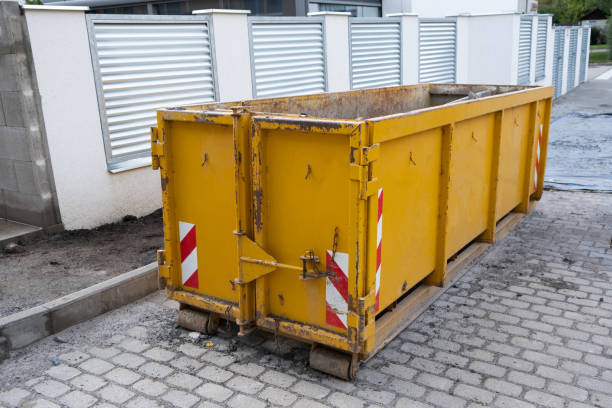Home improvement projects, spring cleaning, and yard work all generate a significant amount of waste. While regular trash collection handles everyday needs, tackling larger projects often requires a more substantial solution: a dumpster rental.
This article will guide you through the process of renting a dumpster, ensuring a smooth and efficient waste disposal experience for your next project.
Choosing the Right Size Dumpster
The first and most crucial step is selecting the right-sized dumpster. Renting one too small leads to overflowing containers and potential fees, while a massive dumpster can be unnecessarily expensive.
Here are some key factors to consider when choosing your dumpster size:
- Project Scope: Consider the type of project you’re undertaking. Demolition and roofing projects typically generate more waste than simple cleanups or yard work.
- Material Type: The type of materials you’ll dispose of also impacts the size needed. Heavy materials like concrete require a smaller container compared to bulky but lightweight items like yard waste.
- Local Regulations: Some municipalities have restrictions on dumpster size and placement. Check with your local authorities to avoid encountering any surprises.
Rental companies typically offer a range of dumpster sizes, commonly measured in cubic yards. Popular options include 10-yard, 15-yard, 20-yard, and 30-yard dumpsters. For smaller projects like spring cleaning or bathroom renovations, a 10-yard dumpster might suffice. Larger jobs involving construction or complete home renovations may require a 20-yard or even a 30-yard container.
Pro Tip: When in doubt, err on the side of caution and choose a slightly larger dumpster than you initially think you might need. It’s better to have some extra space than to be caught short halfway through your project.
Understanding Rental Costs and Permits
Dumpster rental prices vary depending on your location, the size of the dumpster, and the rental period. Typical rental periods range from a few days to a few weeks, with additional fees for exceeding the allotted time. Some companies offer flat-rate pricing, while others charge based on weight or volume of the disposed materials.
Be sure to inquire about any additional fees associated with the rental, such as delivery, pick-up, and disposal costs. Additionally, some municipalities might require permits for placing a dumpster on public property.
Pro Tip: Get quotes from several dumpster rental companies before making a decision. Don’t hesitate to ask about discounts or special offers, especially for longer rental periods.
Filling Up Your Dumpster: Do’s and Don’ts
Once your dumpster arrives, it’s time to fill it up! Here are some crucial points to ensure proper utilization:
- Do: Dispose of acceptable materials as outlined by the rental company. This typically includes construction debris, household furniture, yard waste, and appliances.
- Don’t: Put hazardous materials like paint, batteries, or chemicals in the dumpster. These materials require specific disposal protocols.
- Do: Break down large boxes and furniture to maximize space within the dumpster.
- Don’t: Overfill the dumpster. Rental companies charge extra fees for exceeding the container’s capacity.
Pro Tip: Check with your local waste management department for information on the proper disposal of hazardous materials. Some municipalities offer designated drop-off locations for these items.
The Final Haul: Post-Rental Considerations
When your project is complete and the dumpster is filled, contact the rental company to schedule pick-up. Be sure to remove any prohibited items before they arrive. The company will haul the dumpster away and handle the proper disposal of the collected waste.
By following these tips, you can navigate the often-confusing world of dumpster rental with confidence. Renting the right size dumpster, understanding costs, and following safe disposal practices will ensure a smooth and efficient waste management experience for your next project. With proper planning, your project won’t be overshadowed by the stress of waste disposal.


